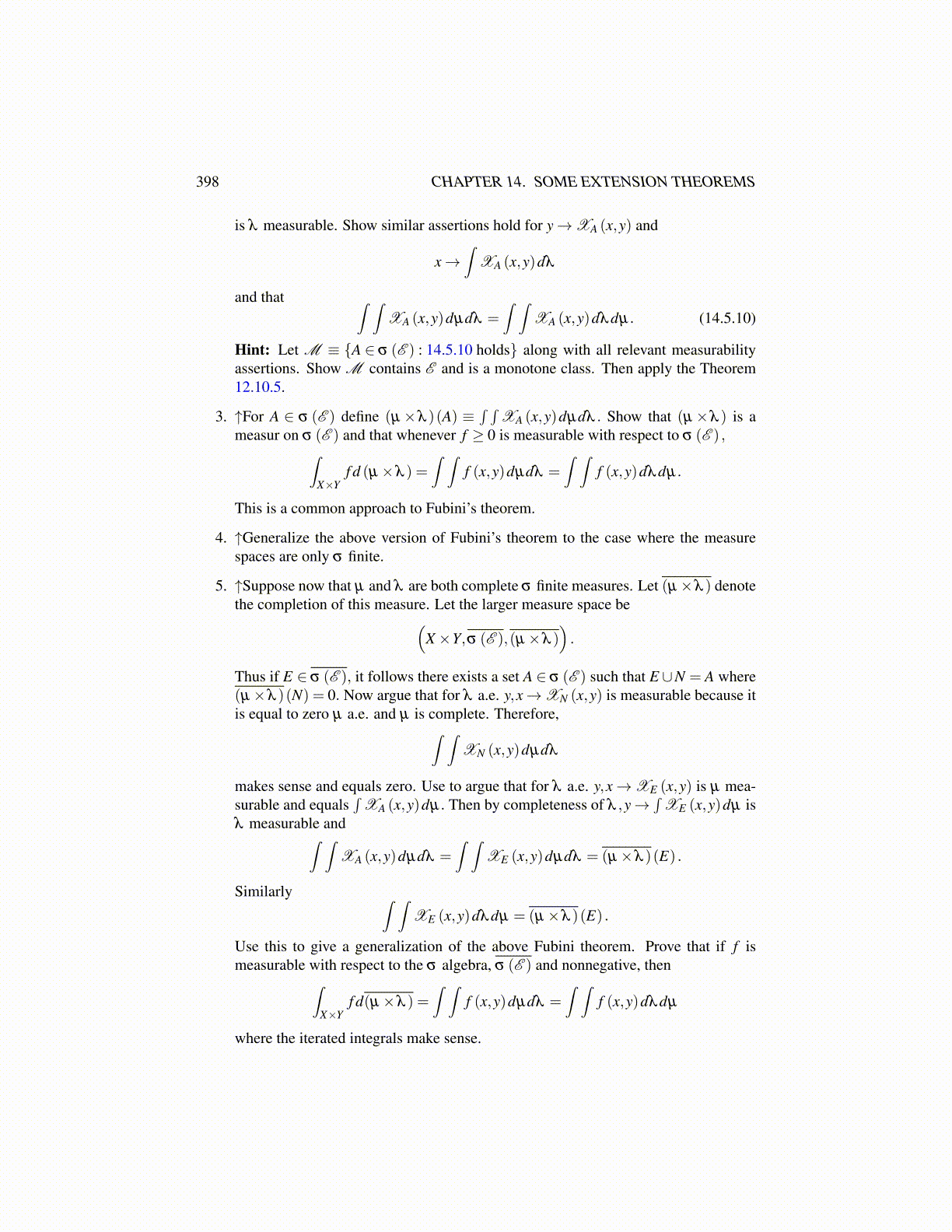
398 CHAPTER 14. SOME EXTENSION THEOREMS
is λ measurable. Show similar assertions hold for y→XA (x,y) and
x→∫
XA (x,y)dλ
and that ∫ ∫XA (x,y)dµdλ =
∫ ∫XA (x,y)dλdµ. (14.5.10)
Hint: Let M ≡ {A ∈ σ (E ) : 14.5.10 holds} along with all relevant measurabilityassertions. Show M contains E and is a monotone class. Then apply the Theorem12.10.5.
3. ↑For A ∈ σ (E ) define (µ×λ )(A) ≡∫ ∫
XA (x,y)dµdλ . Show that (µ×λ ) is ameasur on σ (E ) and that whenever f ≥ 0 is measurable with respect to σ (E ) ,∫
X×Yf d (µ×λ ) =
∫ ∫f (x,y)dµdλ =
∫ ∫f (x,y)dλdµ.
This is a common approach to Fubini’s theorem.
4. ↑Generalize the above version of Fubini’s theorem to the case where the measurespaces are only σ finite.
5. ↑Suppose now that µ and λ are both complete σ finite measures. Let (µ×λ ) denotethe completion of this measure. Let the larger measure space be(
X×Y,σ (E ),(µ×λ )).
Thus if E ∈ σ (E ), it follows there exists a set A ∈ σ (E ) such that E ∪N = A where(µ×λ )(N) = 0. Now argue that for λ a.e. y,x→XN (x,y) is measurable because itis equal to zero µ a.e. and µ is complete. Therefore,∫ ∫
XN (x,y)dµdλ
makes sense and equals zero. Use to argue that for λ a.e. y,x→XE (x,y) is µ mea-surable and equals
∫XA (x,y)dµ. Then by completeness of λ ,y→
∫XE (x,y)dµ is
λ measurable and∫ ∫XA (x,y)dµdλ =
∫ ∫XE (x,y)dµdλ = (µ×λ )(E) .
Similarly ∫ ∫XE (x,y)dλdµ = (µ×λ )(E) .
Use this to give a generalization of the above Fubini theorem. Prove that if f ismeasurable with respect to the σ algebra, σ (E ) and nonnegative, then∫
X×Yf d(µ×λ ) =
∫ ∫f (x,y)dµdλ =
∫ ∫f (x,y)dλdµ
where the iterated integrals make sense.